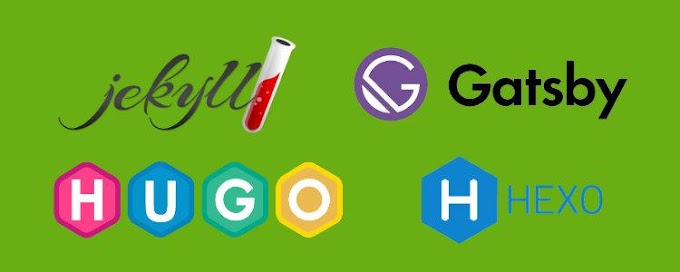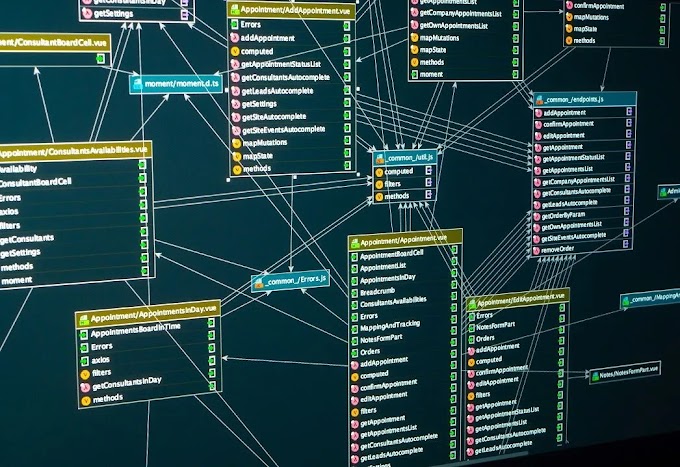Introduction
Blogging has become a popular way for individuals and businesses to share their thoughts and ideas with the world. A blog is essentially a website that is updated regularly with new content, and the programming language you choose to build your blog can have a significant impact on its success. There are many different programming languages available, each with its own strengths and weaknesses. In this article, we'll explore some of the most popular programming languages for building a blogging site, and help you choose the right one for your needs.
PHP
PHP is a server-side scripting language that is used to build dynamic web applications. It is one of the most popular programming languages for building blogs, due to its ease of use and widespread availability. PHP is an open-source language, which means that it is free to use and has a large community of developers who contribute to its development and improvement.
One of the biggest advantages of PHP is its ability to work with databases. Most blogging sites require a database to store posts, comments, and other content, and PHP makes it easy to interact with databases such as MySQL and PostgreSQL. PHP is also highly customizable, with many libraries and frameworks available to extend its functionality and make it easier to use.
Ruby on Rails
Ruby on Rails, often abbreviated as "RoR," is a web application framework that is built on top of the Ruby programming language. RoR is known for its "convention over configuration" philosophy, which means that it makes certain assumptions about how your code should be structured and configured, to simplify the development process.
RoR is highly modular, with many different "gems" (libraries) available to extend its functionality. It also has a strong community of developers who contribute to its development and improvement. RoR is often used for building complex web applications, but it can also be a good choice for building a blogging site.
One potential downside of RoR is that it can be slower than other programming languages, due to its heavy use of abstractions and its dynamic nature. This may not be an issue for small to medium-sized blogging sites, but it could become a problem for larger sites with a lot of traffic.
Python
Python is a general-purpose programming language that is widely used for web development, data analysis, and artificial intelligence. It is known for its readability, ease of use, and flexibility. Python is often used for building complex web applications, but it can also be a good choice for building a blogging site.
Python has a large community of developers who contribute to its development and improvement. It also has many libraries and frameworks available to extend its functionality and make it easier to use. One of the most popular frameworks for building web applications with Python is Django, which is known for its "batteries included" philosophy.
One potential downside of Python is that it can be slower than other programming languages, due to its interpreted nature. This may not be an issue for small to medium-sized blogging sites, but it could become a problem for larger sites with a lot of traffic.
JavaScript
JavaScript is a programming language that is used primarily for front-end web development. It is the language of the web and is used to add interactivity and dynamic functionality to websites. JavaScript can also be used on the server-side, through the use of Node.js.
One advantage of JavaScript is its ubiquity. Every modern web browser has a JavaScript engine built in, which means that JavaScript can be used to build websites that work on any platform. JavaScript is also highly customizable, with many libraries and frameworks available to extend its functionality and make it easier to use.
One potential downside of JavaScript is that it can be difficult to debug, due to its dynamic nature and lack of static typing. This may not be an issue for small to medium-sized blogging sites, but it could become a problem for larger sites with more complex code.
Java
Java is a popular programming language that is used for a wide variety of applications, including web development. Java is known for its robustness, security, and cross-platform compatibility. Java is often used for building enterprise-level applications, but it can also be a good choice for building a blogging site.
One advantage of Java is its ability to handle high levels of traffic. Java is known for its scalability, which means that it can handle large amounts of traffic without slowing down or crashing. Java also has a large community of developers who contribute to its development and improvement, as well as many libraries and frameworks available to extend its functionality.
One potential downside of Java is that it can be more difficult to learn and use than other programming languages, due to its complexity and verbosity. This may not be an issue for experienced developers, but it could be a barrier for beginners.
Go
Go, also known as Golang, is a relatively new programming language that was developed by Google. Go is designed to be fast, simple, and scalable, and is often used for building web applications and distributed systems. Go is a compiled language, which means that it is generally faster than interpreted languages like Python and JavaScript.
One advantage of Go is its ability to handle high levels of traffic. Go is designed to be highly scalable, which means that it can handle large amounts of traffic without slowing down or crashing. Go also has a strong focus on concurrency, which makes it well-suited for building web applications that need to handle many requests simultaneously.
One potential downside of Go is that it is a relatively new language, which means that it may not have as many libraries and frameworks available as more established languages like PHP and Python. This could make it more difficult to find resources and support when building a blogging site with Go.
Conclusion
Choosing the right programming language for your blogging site depends on a variety of factors, including your level of experience, the size and complexity of your site, and your specific needs and preferences. Each of the programming languages discussed in this article has its own strengths and weaknesses, and there is no one-size-fits-all solution.
Ultimately, the best way to choose the right programming language for your blogging site is to do your research, consider your options, and choose the language that best meets your needs. By taking the time to make an informed decision, you can ensure that your blogging site is both functional and efficient, and can attract and engage your audience for years to come.







